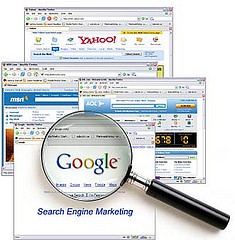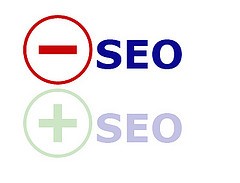In our current digital era, businesses can’t afford NOT to invest in online marketing. Over the past two decades, the Internet has become the main source of information for consumers and the most vital marketing tool for business owners. There are hundreds of new websites created every minute, which only makes competition fiercer across various industries.
Despite this steady online marketing surge, many businesses are not conducting good search engine optimization (SEO) practices. Whether it’s because they haven’t upgraded their marketing strategies or are just ill advised regarding SEO, many businesses are suffering from the drawbacks of poor SEO management. Learn how to avoid the most common SEO pitfalls so that your business doesn’t sacrifice its website traffic and search engine rankings:
Harmful Backlinks
Link building is a major tool in SEO but not every link is beneficial to your business. Backlinks that are bad for business include broken links, links to spam websites, and links for pages that are just irrelevant.
You can find and fix useless backlinks with tools like Open Site Explorer, which gathers your online data allowing you to look for and remove all questionable links. This is a tedious but necessary task, where you have to contact webmasters and ask them to pull your link from their sites. You can also use Google’s disavow backlinks tool to ensure your search ranking and your business’s reputation.

Image courtesy of SEOPlanter
Even when it’s unintentional, duplicate content online hurts your SEO. Duplicate copies of the same information can hurt your search engine results because search engines can’t tell what’s relevant and which results to use. Luckily, there are tools like MOZ Crawl Test and Link Sleuth to help you locate unnecessary duplicate content. Once located, you can use the rel=canonical tag and other similar tools to indicated which is the preferred URL.
Page-Load Time
Search engines like Google consider your website’s page-load time, and a slow loading page will suffer in rankings. Users don’t like slow loading pages either, and will lose interest if sites take too long to load. Increase your loading speed by controlling your image sizes and formats, and get rid of unnecessary html, CSS, or plug-ins.
Title Tags & Meta-Descriptions
Web page titles and title tags are vital to your SEO because titles show up on search engine page results (SERP) and wherever your website is linked, such as on social media platforms. If your titles are too long (longer than 60 characters), they’ll be cut off on SERPs and if they’re too short than you’re not properly utilizing the title feature. Titles should be concise but informative, using relevant keywords.
Your meta-description also shows up on SERPs, below your title, so it too should be used to help not hurt your SEO. It should be a brief, one sentence description of your page.
Over-optimizing Keywords & Image Optimization
While using keywords on your website is a smart idea, you don’t want to get over zealous with them. If every page is overflowing with keywords, search engines won’t recognize which page is most on-topic. Be certain that each page has relevant keywords, that match the page’s title, and that you’re using different keywords on different pages.

Image courtesy of Danard Vincente
An image can be worth a thousand words but search engines can’t read them like text. When using images on your site, make sure to use smart SEO tactics—like having alt tags, image tags, and file names for every picture—so that search engines can read and index your images.
Good content is key, when it comes to good SEO practices. Have applicable, descriptive, and regularly updated content on your site. Users are searching online for information so publish useful data about your business that they’ll want to read.
Along with bad content, all the above-mentioned SEO pitfalls should be avoided. Otherwise, you risk making your business’s website hard to index for search engines. If your site can’t be indexed due to bad SEO practices, then its traffic will drop. Don’t let your online marketing work go to waste—practice smarter SEO management to increase your visibility and search engine rankings.

